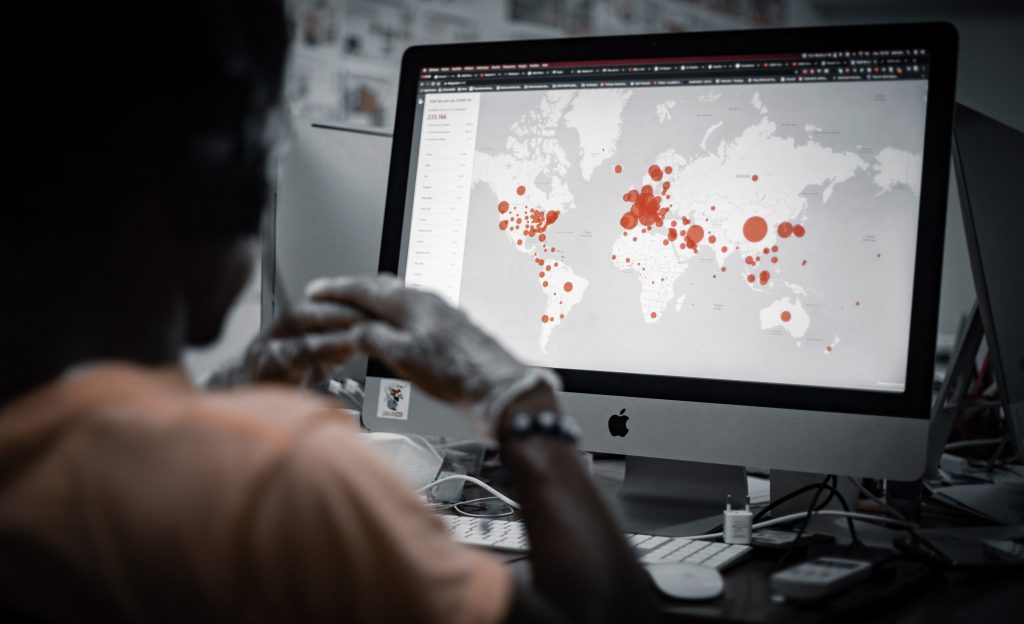Crisis Management Principles in the war against Covid-19

Maurício Pontes

One of the most used words in everyday life – and one that ends up trivializing its meaning – is crisis. It is a broad word, as it contemplates a series of situations of varying dimensions, sectors, and forecasts. Crisis is synonymous with several events, and there is no lack of different definitions. Simply put, a crisis is an event with the potential for disruption, that is, the interruption of the normal evolution of a process or that impairs normality, causing significant damage.
Crisis Management is the process or set of measures designed to react to each element of a crisis, until it is able to contain its damage or to interrupt its evolution, enabling the return to a balanced situation. Notably, it is a task for experienced professionals and experts on the various fronts that crises impose, such as the very nature of the event and its humanitarian, communication, logistics, psychosocial problems, and C5I capacity: Command, Control, Communication, Computing, Cooperation, and Intelligence, in a coordinated way.
Crises can show early signals, but they do not warn, so it is essential to keep vigilance and analyze the risks and vulnerabilities so that the material, i.e., human and strategic resources, can prompt activation. This is only possible with a culture that encourages investment and, above all, planning. No one moves forward without a crisis management plan, based on historical and likely scenarios, open to the flexibility required for unknown events.
However, how to understand and dimension a critical event of natural origin? How to ensure the internal variables of the system, such as the competence of its members, the robustness of the resources allocated, endurance, and resilience? The efficiency of a unified and balanced chain of command? External elements such as the weather, earthquakes, fire, and tides, for example, can change the course of the battle. That is why Plans need to be dynamic guides, as we live in the reality of a complex universe. The Crisis Management doctrine and the science to be employed with it are essential for the preservation of lives, our strongest goal in this activity.
Baron d’Hollback, an Illuminist philosopher wrote in 1770 in The System of Nature that “the source of human unhappiness lies in his ignorance of nature”. Men’s inability to accept complex thinking makes them vulnerable to threats uncontrollable by systemic thinking and the binary option. Complexity – which teaches us that everything is intertwined and presents unpredictable patterns – has not yet destroyed the arrogance of the narrative of accuracy and predictability, denying, out of fear or pride, the role of the imponderable.
Moreover, it is possible to summarize a crisis management process as research, response plan, agile deployment of resources, damage control, and return to balance, with clear communication. Each ingredient of the recipe implies humility facing the problem, emphasis on human lives, science as a source of investigation of origins and solutions, method, and the cooperation of all with a single goal: the homeostasis of the system, represented here as a living organism, the society.
We know that the worst crises that hit mankind since history began to record them came from nature. In the current SARS-CoV-2 pandemic – which has been haunting humanity with the collapse of healthcare systems, many deaths, unpredictable economic and social consequences – there is only one certainty: civilization will not be the same after this event.
For the first time in modern history, all of humanity is facing the same threat. We will need to come together and fight together. We will need respect for science, esthesis, and balance of those involved in this deadly struggle. We will need sober leaders who recognize that only accumulated human knowledge, the expertise of tireless experts and the gathering of all nations, are an imperative condition for our survival. There are high costs to prevail. But as New York Governor Andrew Cuomo said, the priority is not “how much” – but “how many”. This is the ethics in crisis management that puts us on the edge at this decisive moment in history.
Maurício Pontes holds a degree in Law and postgraduate degrees at both ESPM and Insper. He is an expert in Crisis Management, Risk Management, Security Systems, and Policy and Strategy by entities such as IATA, ICAO, NTSB, FBI, Association of Graduates of ESG. He was the Brazilian representative appointed to the Crisis Leadership program (IVLP) by the United States Department of State. He has been part of several activities related to the training of astronauts and the operation of Mission Control Centers in space missions. He held managing positions at TAM, Grupo ING, Azul, and Gru Airport. He is currently Managing Director of C5i Crisis Consulting.
COMENTÁRIOS:
Destaques
- Escola Aberje leva comunicadores para Amazônia em expedição imersiva
- Encontro de líderes debate responsabilidade do setor empresarial e papel da comunicação na COP30
- Aberje realiza reunião presencial com Comitês de Estudos Temáticos em São Paulo
- A comunicação é forte em mercados em que as associações são fortes
- Aberje participa do painel de entidades no 19º Congresso da Abraji
ARTIGOS E COLUNAS
Marcos Santos Maratona da vidaMônica Brissac Thought Leadership: marca pessoal x reputação corporativaLetícia Tavares Liderança comunicadora: um tema sempre atualHamilton dos Santos Comunicação é estratégica na economia contemporâneaCarlos Parente Um salto ornamental para mergulhar no pires



























